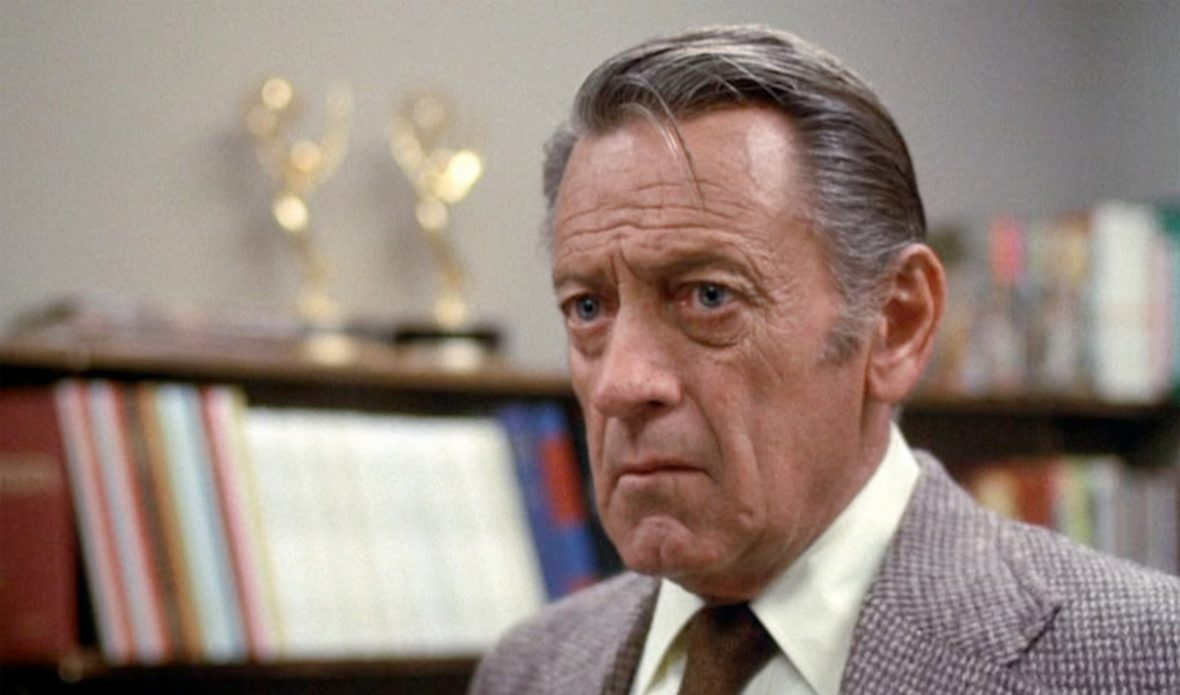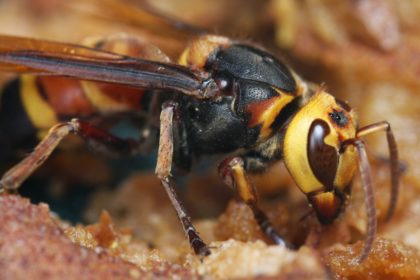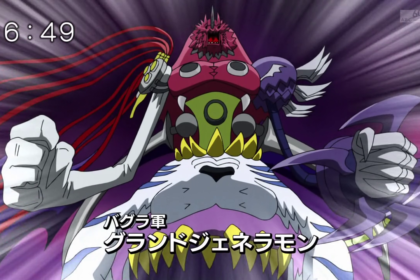Network is a 1976 American satirical movie written by Paddy Chayefsky and directed by Sidney Lumet, about a fictional television network, UBS, and its struggle with poor ratings. The movie stars Faye Dunaway, William Holden, Peter Finch, and Robert Duvall and features Wesley Addy, Ned Beatty, and Beatrice Straight. Take a look below for 27 interesting and fascinating facts about Network.
1. Network won four Academy Awards, in the categories of Best Actor, Best Actress, Best Supporting Actress and Best Original Screenplay.
2. In 2000, the movie was selected for preservation in the United States National Film Registry by the Library of Congress as being, “culturally, historically, or aesthetically significant.”
3. In 2002, Network was inducted into the Producers Guild of America Hall of Fame as a movie that has, “set an enduring standard for American entertainment.”
4. In 2005, the two Writers Guilds of America voted Paddy Chayefsky’s script one of the 10 greatest screenplays in the history of cinema.
5. In 2007, the movie was 64th among the 100 greatest American movies as chosen by the American Film Institute, a ranking slightly higher than the one the American Film Institute had given it ten years earlier.
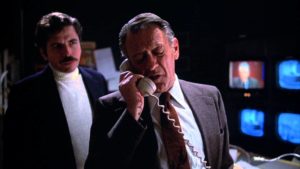
6. Director Sidney Lumet and Screenwriter Paddy Chayefsky claimed that the movie wasn’t meant to be a satire but a reflection of what was really happening.
7. Beatrice Straight is only on-screen for five minutes and two seconds. Hers was the briefest performance ever to win an Oscar.
8. According to Sidney Lumet, the “Mad as Hell” speech was filmed in one and a half takes. Midway through the second take, Peter Finch abruptly stopped in exhaustion. Lumet was unaware of Finch’s failing heart at the time, but in any case, didn’t ask for a third take. What’s in the completed movie is the second take for the first half of the speech, and the second half from the first take.
9. Sidney Lumet openly admitted that he was furious to have the picture lose to Rocky for Best Picture at the Academy Awards.
10. The only music heard in the movie comes from commercials and television show themes.
11. Ned Beatty once remarked that actors should never turn down work, “I worked a day on Network and got an Oscar nomination for it.”
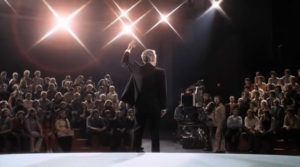
12. Peter Finch was desperate to win the role of Howard Beale once he had read the script. He even offered to pay his own airfare to New York City for the screentest. However, Sidney Lumet was concerned about Finch’s Australian accent. Finch won the part after sending Lumet a recording of himself reading the New York Times with a perfect American accent.
13. Network is only one of two movies that has been awarded three acting Oscars, the other movie being A Streetcar Named Desire. Although both were nominated, neither movie won the Best Picture Oscar that year.
14. Before 2013, Network was the last movie to receive five Academy Award nominations in the acting categories. Silver Linings Playbook was nominated in all acting categories, but only won Best Actress.
15. Peter Finch died before the Academy Awards were to take place, where he was nominated for Best Actor. He won, making him the first performer ever to receive a posthumous award at the Oscars. The second winner was fellow Australian Heath Ledger for The Dark Knight.
16. Walter Cronkite and John Chancellor were approached for the Howard Beale role, but neither was interested. Cronkite’s daughter Kathy Cronkite agreed to play left-wing radical Mary Ann Gifford, a character loosely based on Patricia Hearst.
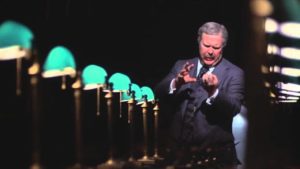
17. Network is Peter Finch’s final feature film. His final screen appearance was in Raid in Entebbe.
18. James Stewart turned the movie down because of the strong language.
19. Henry Fonda turned down the role of Howard Beale, saying that it was “too hysterical.” Glenn Ford and George C. Scott also turned it down. Although William Holden turned it down, he was cast in the other male lead and was nominated for Best Actor along with Peter Finch.
20. Throughout the entire movie, we never actually see Diana speak to Howard.
21. The three Oscar winners, Faye Dunaway, Peter Finch and Beatrice Straight, share scenes with William Holden, but they share no scenes with each other. Finch and Dunaway, who won the Best Actor and Best Actress Oscars, have no scenes or dialogue together in the movie.
22. During his “the world is a business” speech, Jensen references rins, a Japanese currency that had been out of circulation for over 20 years.
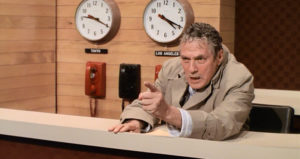
23. In the movie, Max and Diana refer to their affair as a “many-splendored thing,” an inside joke, since William Holden had starred in Love Is a Many-Splendored Thing.
24. In 1968, Paddy Chayefsky worked on a pilot script for a possible television comedy series called “The Imposters,” in which political subversives infiltrate and try to undermine a television network.
25. Arthur Burghardt was a vegetarian. For the scene where he was to eat a piece of chicken, Burghardt stuffed his cheeks with paper towels and smeared the grease on his face before the camera rolled, instead of actually eating the meat.
26. Faye Dunaway revealed in her autobiography that she wanted Robert Mitchum to play Max.
27. Black radical Laureen Hobbs’ character is loosely modeled after Communist activist Angela Davis.

